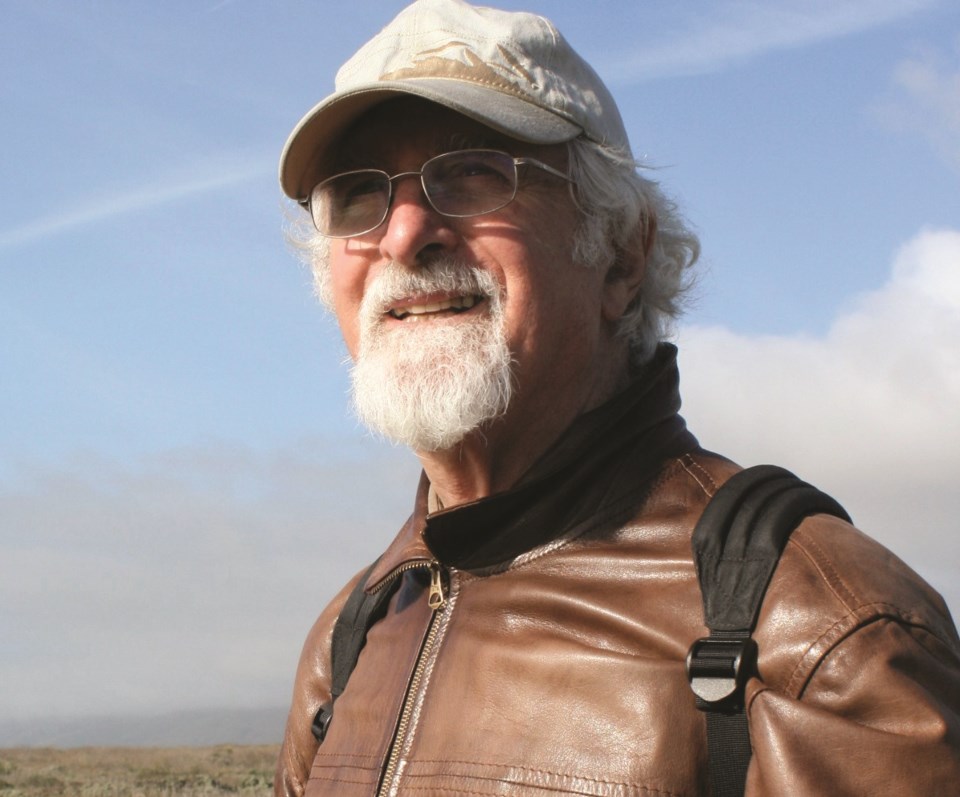When Gary Geddes was still in grad school in the mid-’60s, long before he had penned or edited the more than 50 books of poetry, fiction, non-fiction, and anthologies that would bear his name, long before the litany of awards he had earned as one of Canada’s most celebrated poets, he got a piece of advice from a mentor that sticks with him to this day.
“He said, ‘Gary, William Blake may have found the universe in a grain of sand, but you’re not going to find one in your belly button, so stop contemplating it,’” Geddes recalls.
That one comment wound up shaping Geddes’ entire career, and as he put it, formed “the beginning of my understanding of the power of persona.” Instead of writing from his own purview, Geddes began to inhabit other characters, writing from their first-person perspective. “It got me out of my own little claustrophobic ego out into the bigger world. I could write about things by using the first-person persona rather than speaking out of my own voice,” he says.
It’s an approach that has served Geddes well throughout his prolific career as Canada’s preeminent political poet, and is on full display in his latest book, The Ventriloquist, which he will be reading from at a virtual event this week hosted by the Whistler Public Library. Bringing back into print four poetic narratives that, like much of Geddes’ work, confront the physical and psychological ravages of war, The Ventriloquist saw the author taking his usual hands-on research approach.
One narrative centres on Canada’s role in the Fall of Hong Kong, one of the first battles of the Pacific War in the Second World War. Geddes pored through hours of audio interviews with Canadian veterans who took part in the battle, read issue upon issue of the South China Morning Post after Japan had occupied Hong Kong and wrested the publication from the hands of locals, and even crawled on his belly through the same Hong Kong battlefields thousands of soldiers had braved decades before.
“At one point, I was so overwhelmed by it, I started to feel as if I was getting secondary PTSD. I said to my wife, ‘I can’t go on. I have to drop this subject. It’s too powerful.’ She said, ‘Well, I’m so glad to hear that. You’ve been impossible to live with,’” Geddes recalls with a laugh.
But once he had given himself permission to drop the poem, the words began flowing out of him. After nine years, his manuscript was finished. “It had taken some weight off of me,” he says.
Geddes has described his literary and historical work as pulling from “the ventriloquism of history” to lend a voice to “all those disembodied spirits silenced by turmoil and time who are wandering the ether looking for a sucker like me to tell their stories.”
Through his decades-long career, which has earned him everything from a B.C. Lieutenant Governor’s Award to the Commonwealth Poetry Prize for the Americas and even the Gabriela Mistral Prize handed out by the Chilean government, Geddes went on to be considered one of Canada’s foremost anti-war literary figures.
Given humanity’s long penchant for conflict, I ask him if a world without war is remotely conceivable.
“Kane slew his brother Abel, as we hear in the Bible story. There have been records of genocide and slaughter right up to the moment as it were, including the Canadian genocide against Indigenous people,” he says. “We can never change human nature to the point where none of this will happen, but we need to be constantly on the alert and speaking out against those destructive ways of living together.”
Geddes mentions a quote by Dylan Thomas to illustrate his point, in which the late Welsh poet describes how, from “the womb of war,” he tries to “make that momentary peace that is a poem.”
“In other words, peace is not a permanent condition,” Geddes says. “It’s something that has to be dealt with daily, like poetry. It’s a sort of meditation that has to be with us at all times.”
Geddes will be reading from his latest book in a Zoom talk on Feb. 10 at 7 p.m., which will be followed by a Q&A. Register for the free event by emailing [email protected].




